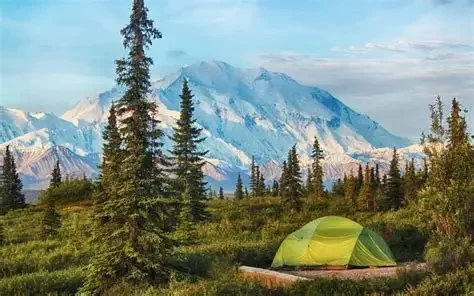Learn tips for finding the best campsite for scenic overlooks. Discover how to choose ideal locations, prepare for comfort, and enjoy breathtaking outdoor views.

- 1 - Why Scenic Overlooks Matter in Camping
- 2 - Researching Destinations for the Best Views
- 3 - Terrain and Accessibility: Balancing Beauty and Safety
- 4 - Timing and Seasons for Scenic Campsites
- 5 - Personal Stories from Scenic Overlook Campsites
- 6 - Preparation Tips for Scenic Campsite Comfort
- 7 - Enhancing Your Experience with the Right Gear
1. Why Scenic Overlooks Matter in Camping
For many campers, the view is as important as the campsite itself. Waking up to a panoramic sunrise over the mountains or watching a sunset reflected on a calm lake can transform a trip from good to unforgettable. Scenic overlooks create opportunities for reflection, photography, and lasting memories. They remind us why we seek nature in the first place—connection, beauty, and serenity.
2. Researching Destinations for the Best Views
Finding the perfect campsite with a scenic overlook requires some planning. National park websites, trail guides, and even social media groups can offer valuable insight into the most picturesque spots. For example, campers often share hidden gems with breathtaking ridges or coastal cliffs that aren’t highlighted on official maps. By comparing reviews and trail difficulty levels, you can narrow down locations that balance accessibility with remarkable views.
3. Terrain and Accessibility: Balancing Beauty and Safety
A stunning overlook often comes with challenging terrain. While ridge-top campsites provide unmatched views, they may require hiking steep paths or carrying gear over uneven ground. Accessibility should always be weighed against personal fitness and group experience levels. Families with children, for example, might prefer a lakeside overlook that offers beauty without the strenuous climb. Always check maps and elevation guides before making your choice.
4. Timing and Seasons for Scenic Campsites
Scenic overlooks change dramatically with the seasons. A spot that looks ordinary in summer may transform into a fiery canvas of colors in autumn. Similarly, spring campsites near valleys often bloom with wildflowers, creating a perfect backdrop. Timing your trip around natural phenomena—like meteor showers or fall foliage—can make the campsite even more rewarding. Many experienced campers plan yearly trips to their favorite overlooks just to see them in different seasons.
5. Personal Stories from Scenic Overlook Campsites
During one summer in Colorado, a group of campers discovered a plateau with a 360-degree view of the Rockies. They described how the sunrise illuminated the peaks in shades of gold and pink, a memory they still cherish years later. Another story from the Blue Ridge Mountains shared how a family camped near an overlook trail and enjoyed stargazing with almost no light pollution. These stories highlight that scenic campsites offer more than views—they offer experiences that linger long after the trip ends.
6. Preparation Tips for Scenic Campsite Comfort
Once you’ve found your dream overlook, preparation becomes key. Wind exposure is common in elevated sites, so bringing sturdy tents and proper stakes ensures safety. Water sources may be scarce on ridges, requiring extra planning for hydration. Campers should also pack warm clothing, as higher altitudes can bring colder nights even in summer. Being ready for these conditions allows you to enjoy the scenery without unnecessary discomfort.
7. Enhancing Your Experience with the Right Gear
Scenic overlooks provide the backdrop, but your gear shapes the comfort of your stay. Lightweight chairs let you relax while soaking in the view, while portable stoves allow you to cook meals in inspiring settings. Many campers recommend binoculars or telescopes to fully appreciate distant landscapes or nighttime skies. Visiting Pine Cliff Resort can help you find the right camping gear to elevate your experience and make your scenic campsite feel like home in the wild.
Wolf Creek Reservoir Campground
Union County, OR 97867, USA
Visit Location PageHome Field Advantage Farmstead
5789 SE Co Rd 255, Lee, FL 32059, USA
Visit Location Page